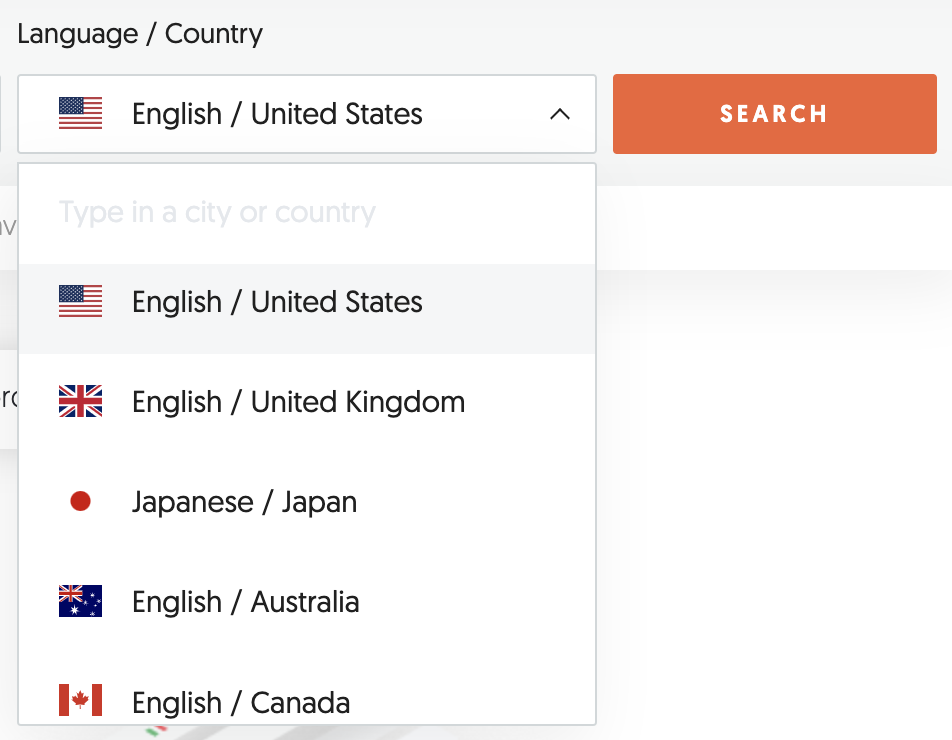From Localization to Globalization: International SEO Basics
From Localization to Globalization: International SEO Basics
Blog Article
Navigating the Digital Landscape: Leveraging International Search Engine Optimization for Cross-Border Success
In today's interconnected electronic globe, services are significantly looking beyond borders to tap right into international markets. The complexity of browsing the digital landscape on an international range requires a nuanced method, from understanding the principles of International Search engine optimization to executing geotargeting and multilingual keyword approaches.
Understanding International Search Engine Optimization Basics
Navigating the intricacies of worldwide SEO needs a solid grasp of essential concepts to successfully expand on the internet visibility across borders. One crucial aspect of global SEO is comprehending the importance of localization. This includes tailoring website content to fit the linguistic, cultural, and industrial distinctions of target markets. Keyword phrases have to be not just converted yet additionally adapted to mirror just how individuals in various regions look for info.
In addition, having a clear understanding of geo-targeting is vital. This entails showing to browse engines the details countries or regions a site is targeting. Implementing hreflang tags is one method to connect this details, making sure that the correct version of a web page shows up in the search results for a user in a certain place.
Moreover, understanding the influence of neighborhood online search engine and social media sites systems is vital for worldwide SEO success. While Google is leading in several areas, nations like China have their own search engines like Baidu, needing tailored strategies for each system to take full advantage of on-line visibility (International SEO).

Targeting Multilingual Key Words Approaches
Developing multilingual key words approaches is crucial for effectively getting to diverse worldwide target markets and taking full advantage of online exposure throughout different etymological regions. When targeting multilingual key phrase strategies, it is critical to perform detailed research to comprehend the particular search terms and expressions used by the target market in each linguistic region. This includes not just equating keywords yet also thinking about cultural subtleties, regional dialects, and search trends unique to every target audience.
To develop an effective multilingual key words method, it is necessary to focus on significance and search intent. Key phrases ought to line up with the material on the web site and resonate with the social context of the target market. Making use of devices such as Google Search Phrase Planner, SEMrush, or Ahrefs can help identify high-performing keyword phrases in various languages and analyze their search quantity and competitors degree.
Furthermore, tracking and assessing the efficiency of multilingual search phrases regularly is crucial for enhancing and fine-tuning the technique over time. By continuously adapting to adjustments in search actions and fads, companies can improve their online presence and bring in even more worldwide traffic to their websites.
Implementing Geotargeting and Hreflang Tags
When aiming to boost international search engine optimization techniques, including geotargeting and hreflang tags is essential for optimizing website exposure across different areas. Geotargeting entails tailoring content to particular places, guaranteeing that users in various locations receive appropriate information. By applying geotargeting, services can enhance their regional search rankings and bring in region-specific website traffic.

Optimizing Web Site Framework for International Exposure
To further improve worldwide Search engine optimization strategies beyond geotargeting and hreflang tags, maximizing the website framework is necessary for achieving international presence go right here and making the most of reach throughout different regions. A well-structured web site not only improves customer experience but likewise helps with search engine spiders in recognizing the web content and context of the site.
In addition, creating language-specific subdirectories or subdomains can assist online search engine provide the appropriate version of the web site to individuals based upon their language choices, better boosting the general user experience. In addition, optimizing link frameworks to include appropriate search check my blog phrases and geotargeted terms can improve the website's visibility in various regions. By structuring the web site effectively for global target markets, services can raise their chances of bring in international web traffic and increasing their reach throughout borders.

Monitoring and Analyzing Cross-Border Performance
Efficient monitoring and studying of cross-border efficiency is important for assessing the success of global search engine optimization approaches and identifying possibilities for renovation in international reach and exposure. By very closely tracking vital performance indicators (KPIs) across different markets, organizations can gain beneficial insights into the performance of their cross-border SEO efforts. Keeping an eye on metrics such as organic website traffic, keyword positions, conversion rates, and bounce prices can provide a comprehensive sight of exactly how well a site is carrying out in various regions.
Evaluating cross-border efficiency information enables companies to recognize patterns, patterns, and locations for optimization. By contrasting performance across different nations, regions, or languages, companies can identify effective techniques and center web content to better cater to details target audiences. Furthermore, monitoring cross-border performance allows services to stay nimble and responsive in the ever-evolving electronic landscape. Regular evaluation of search engine optimization efficiency on an international range guarantees that business can adjust their approaches promptly to profit from arising possibilities and maintain an one-upmanship in international markets.
Conclusion
In conclusion, worldwide search engine optimization plays a crucial duty in achieving cross-border success by optimizing websites for worldwide visibility, targeting he said multilingual keyword strategies, applying geotargeting and hreflang tags, and keeping track of cross-border efficiency. By recognizing the principles of worldwide SEO and optimizing web site structures accordingly, companies can successfully get to and engage with their target audiences throughout various regions and languages. This strategic method is essential for expanding market reach and driving on-line growth in today's electronic landscape.
Report this page